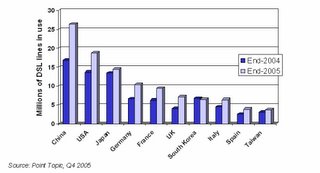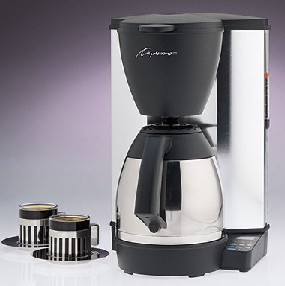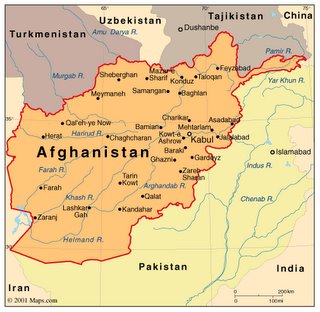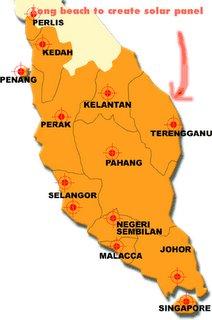The starting point for the Internet is considered to be some memos by
J Licklider of
MIT sent in August 1962 discussing his “Galactic Network” concept. He envisioned a globally interconnected set of computers through which everyone could quickly access data and programs from any site. Licklider was also first head of the computer research programme at
DARPA.
In 1965
Lawrence Roberts and Thomas Merrill - watched anxiously by
Leonard Kleinrock, who had proposed using packets of information - connected two computers together across the US, making it the first
WAN (wide area network).
Working at DARPA in 1967, Roberts proposed
ARPANET based on the packet network concept. ARPANET came online in 1969 with four host computers connected together. The technology was demonstrated to the general public in 1972. The same year the concept of electronic mail was introduced, with
Ray Tomlinson of
BBN writing the basic email message send and read software.
It was from here that ARPANET grew into the Internet, the concept that a group of multiple independent networks could work together. The idea of the open-network architecture came from
Robert E. Khan, also in 1972. His program was called “Internetting” and based on a packet radio scenario. Having problems with the original NCP (network control protocol) he came up with the basis for the idea of what would eventually become the common
TCP/IP (Transmission Control Protocol/Internet Protocol).
The first paper on the subject was a joint effort between Khan and
Vinton G. Cerf that outlined the TCP part of the TCP/IP protocol. In 1983 ARPANET moved off NCP to TCP/IP but it had already been adopted by the military three years earlier.
In 1973 came the advent of
Ethernet technology and by the early 1980s the growth of Local Area Networks (
LANs), PCs and other workstations saw the young Internet grow. One big step was the introduction of the Domain Name System (
DNS), invented by
Paul Mockapetris of
USC/ISI. The DNS permitted a scalable distributed way to resolve hierarchical host names (eg, www.seansite.net) into an Internet address.
The next step was to improve the message routing systems, which spawned the Interior Gateway Protocol (IGP) used inside each region of the Internet, and an Exterior Gateway Protocol (EGP) used to tie the regions together. This design permitted different regions to use a different IGP, giving greater flexibility to the network.
So by 1985 the Internet was already in place as a technology supporting a broad community of researchers and developers. Even before 1985, a number of networks were built specifically for individual groups. They primarily served scholars and researchers along with various government and military organisations.
ARPANET was decommissioned in 1990 but due to the efforts of
NSFNET, TCP/IP was dominating most of the other wide-area computer network protocols worldwide, and IP was well on its way to becoming the standard service for the global information infrastructure.
A major key to the rapid growth of the Internet has been the free and open access to basic documents, especially the specifications of the protocols. Groups like the Corporation for National Research Initiatives (
CNRI), and a host of others including
IAB,
IESG and
IETF , to throw some alphabet soup at you, eventually led to the formation of the World Wide Web Consortium (
W3C). This was initially led from MIT’s Lab for Computer Science by
Tim Berners-Lee, inventor of the web.
Taking the Internet commercial Up until the middle of 1985, there were no real commercial uses of the technology and it was mostly a research sharing and communication platform.
People started by adding TCP/IP support to their products while at the same time supporting their own protocols like
SNA,
NetBios and others. With some workshops in 1985 presented to over 300 different interests, the community was surprised by how open the innovators were and it started the kind of bilateral information sharing that has continued until today.
By 1988 the first
Interop trade show was conducted and people saw how things could work together for their benefit. Since then Interop has grown to be conducted in multiple locations around the world. During the same period IETF meetings were held to talk about extensions to the TCP/IP protocol.
Also by 1988 the Simple Network Management Protocol, or
SMTP, was chosen to allow for remote management of elements like network routers. Even today SMTP is still the most common network management protocol in use.
From here the Internet grew into what we have today - a vastly commercialised and in some ways over-burdened structure. At one end are the vendors with their basic networking solutions and in the middle are the service providers or
ISPs who give us the connectivity and basic services. At the other end are the users and browsers also connecting through an ISP.
The result is a commodity-driven service and to a large extent the original purpose of the Internet as an information sharing resource has been overshadowed by the commercial elements. The result is a shift in focus towards better ways to support this commercialism and hence new initiatives like the updated forms and
XML specifications.
We saw the early browser wars won by
Microsoft and now the new mini war, which I hope is won by
Opera or
Firefox. The next battle will be how to get more people connected to the Internet to be able to exchange goods and services for money.
On October 24, 1995 the Federal Networking Council (
FNC) unanimously passed a resolution defining the term Internet. The definition was as follows:
“‘Internet’ refers to the global information system that _ (i) is logically linked together by a globally unique address space based on the Internet Protocol (IP) or its subsequent extensions/follow-ons; (ii) is able to support communications using the Transmission Control Protocol/Internet Protocol (TCP/IP) suite or its subsequent extensions/follow-ons, and/or other IP-compatible protocols; and (iii) provides, uses or makes accessible, either publicly or privately, high level services layered on the communications and related infrastructure described herein.”
In other words, a network based on TCP/IP for everyone’s use.
How the Internet develops from here will depend on how the change is managed. In the past the decisions came from a core group of engineers who were not looking at the business considerations but the best way to get it all hooked together and working correctly and smoothly.
Over time the focus has gradually shifted and a large number of special interest groups with a lot of commercial might have started to influence even the so called standards bodies. The shift continues from intellectual to economic stakeholding and in some cases the shifts are towards proprietary technology and not open ones.
We are seeing domain name wars where the individual is forced to give up their long-held domain because some company wants it and, worse, these actions are sometimes supported by bodies like the W3C.
As more and more people want to join the Internet club the question becomes how to manage the growth. There are real costs in expanding network bandwidth and the resulting structures need to be coordinated and controlled not by business interests but by groups who want to continue to see the Internet be what it was intended to be.
Without a coordinated approach we could start to see some serious fracturing of the network and see segments become isolated, within regions or countries or by socio economic groupings. Once that happens it will signal the end of the original dream.
Read more...












